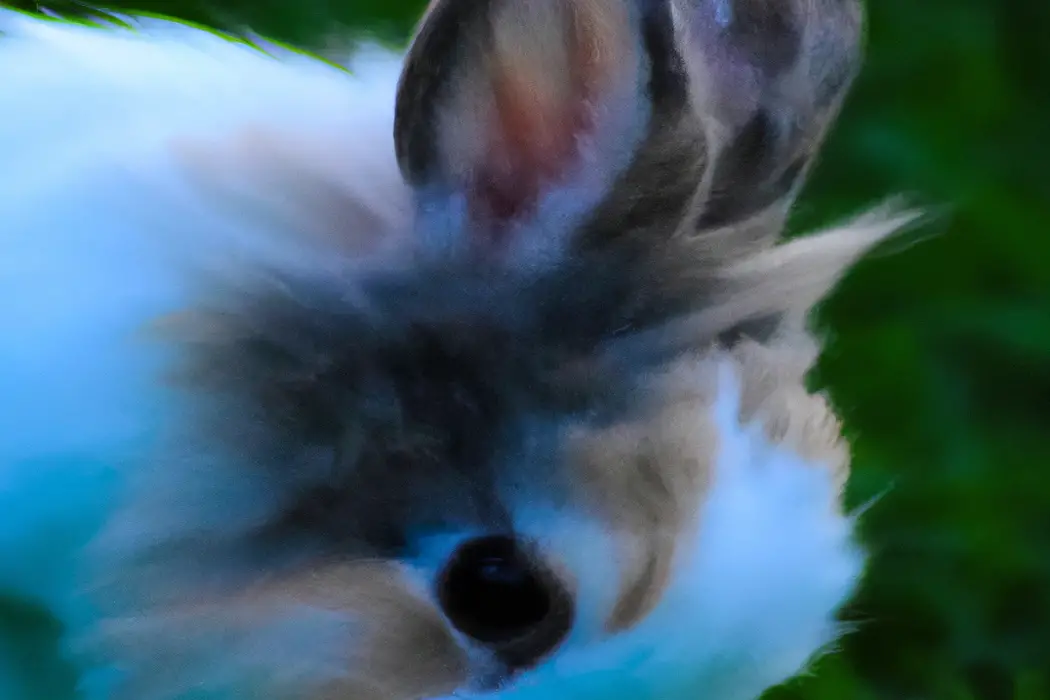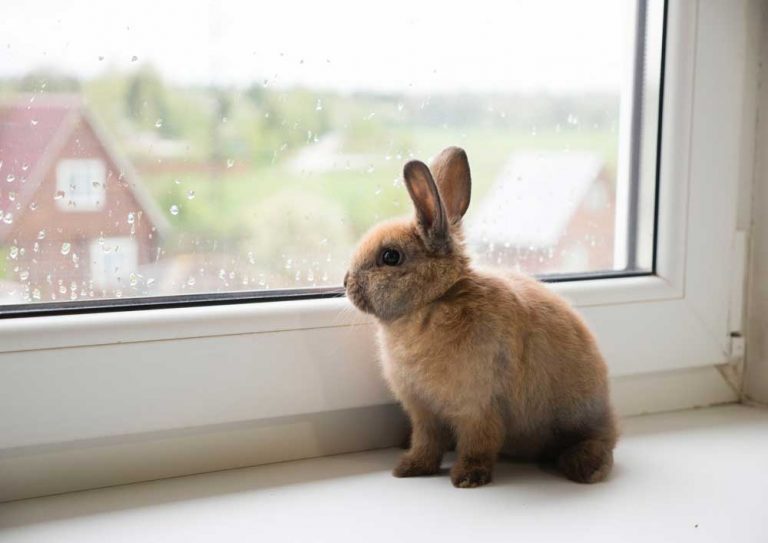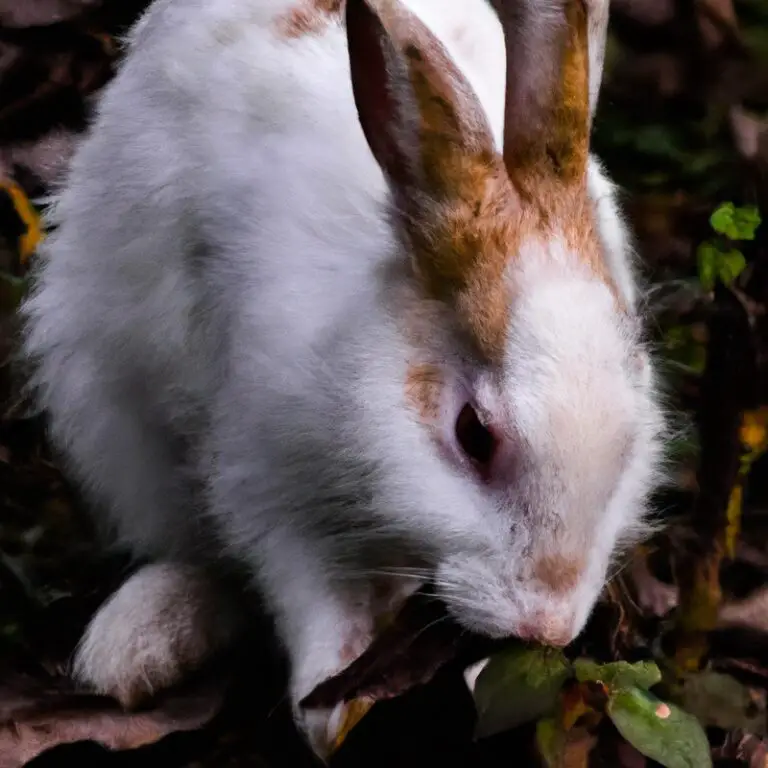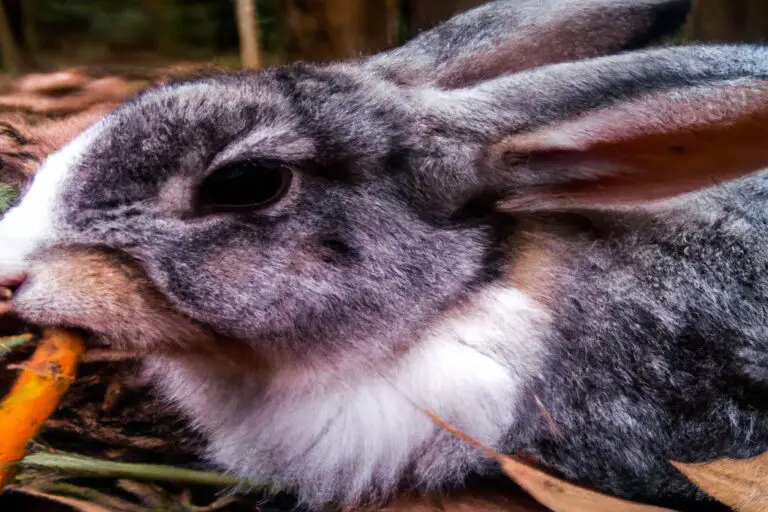Do Rabbits Have Anal Glands: The Scoop!
Key Takeaways:
- Rabbits do not have true anal glands like some other animals.
- However, rabbits have scent glands located near their anus.
- These scent glands are used for marking territory and attracting mates.
- Regular cleaning of the scent glands is important for rabbit health and hygiene.
Hey there! Have you ever wondered if rabbits have anal glands?
It’s a fascinating topic that many rabbit owners are curious about.
Understanding the intricacies of rabbit physiology can help us better care for these adorable creatures.
In this blog article, we’ll dive into the world of anal glands in animals, explore the presence or absence of anal glands in rabbits, and also discuss the functions of rabbit scent glands.
Plus, we’ll provide answers to some frequently asked questions about rabbit anal glands.
So, let’s hop right in and discover the secrets behind these cute furry creatures!
| Rabbits | Anal Glands |
|---|---|
| Yes | Yes |
| No | No |
Anal Glands in Animals
Animals, including mammals, possess anal glands for various physiological functions.
Understanding Anal Glands in Mammals
Anal glands are small sacs located on either side of the anus in mammals. They are present in various species, including dogs, cats, and some rodents.
These glands produce a strong-smelling secretion that is used for marking territories or communication.
The secretion is released through small openings in the anal area. In some cases, the glands can become impacted or infected, causing discomfort or even infection.
Regular vet check-ups and proper hygiene can help prevent these issues.
Role and Functions of Anal Glands in Animals
Anal glands in animals serve several important roles and functions. They are primarily responsible for releasing a scent that can communicate information to other animals.
This scent is often used for marking territories or attracting mates.
Additionally, anal glands can provide lubrication during bowel movements, making it easier for animals to pass waste. Some animals, such as skunks, also use their anal glands as a defense mechanism by releasing a foul-smelling substance when they feel threatened.
Overall, anal glands play a vital role in communication, reproduction, and digestion for many animals.
Do Rabbits Have Anal Glands?
Rabbits do not have anal glands.
Exploring Rabbit Physiology
Rabbit physiology is fascinating. Let’s take a closer look at what makes rabbits unique.
- Digestive system: Rabbits are herbivores with a unique digestive system. They have a large cecum where fibrous food is fermented and broken down further, allowing them to extract more nutrients.
- Teeth: Rabbits have continuously growing teeth, which is why they constantly need to chew on fibrous materials to wear them down. This helps prevent dental problems.
- Eyes: Rabbits have eyes positioned on the sides of their head, providing them with a wide field of vision to spot predators. They also have excellent nighttime vision.
- Hearing: Rabbits have exceptional hearing. Their large ears can rotate independently to pick up sounds from different directions, helping them stay alert to any potential threats.
- Fur: Their soft fur helps them regulate their body temperature, keeping them comfortable in different weather conditions.
- Reproduction: Rabbits have a high reproductive rate and can have multiple litters in a year. Their young are born in a highly undeveloped state and grow rapidly.
By understanding these unique traits in rabbit physiology, we can better appreciate and care for these adorable creatures.
Presence or Absence of Anal Glands in Rabbits
Rabbits do have anal glands, but they are not as developed as in some other animals. These small glands are located near the rectum and secrete a scent or marking fluid.
However, their function in rabbits is not well understood and is believed to be minimal.
While they may have some presence of anal glands, rabbits do not rely on them for communication or scent marking as extensively as other animals do.
Rabbit Scent Glands and Their Functions
Rabbit scent glands play a crucial role in communication and defense, allowing the rabbit to mark its territory and convey information to other rabbits.
Overview of Rabbit Scent Glands
Rabbits have scent glands located in various parts of their bodies.
These glands play important roles in their communication and marking behaviors.
The main scent gland in rabbits is located under their chin, which they use to mark their territory and communicate with other rabbits.
Additionally, they have glands near their anus that produce a scent that helps identify them individually.
These scent glands are an essential part of a rabbit’s natural behavior and communication.
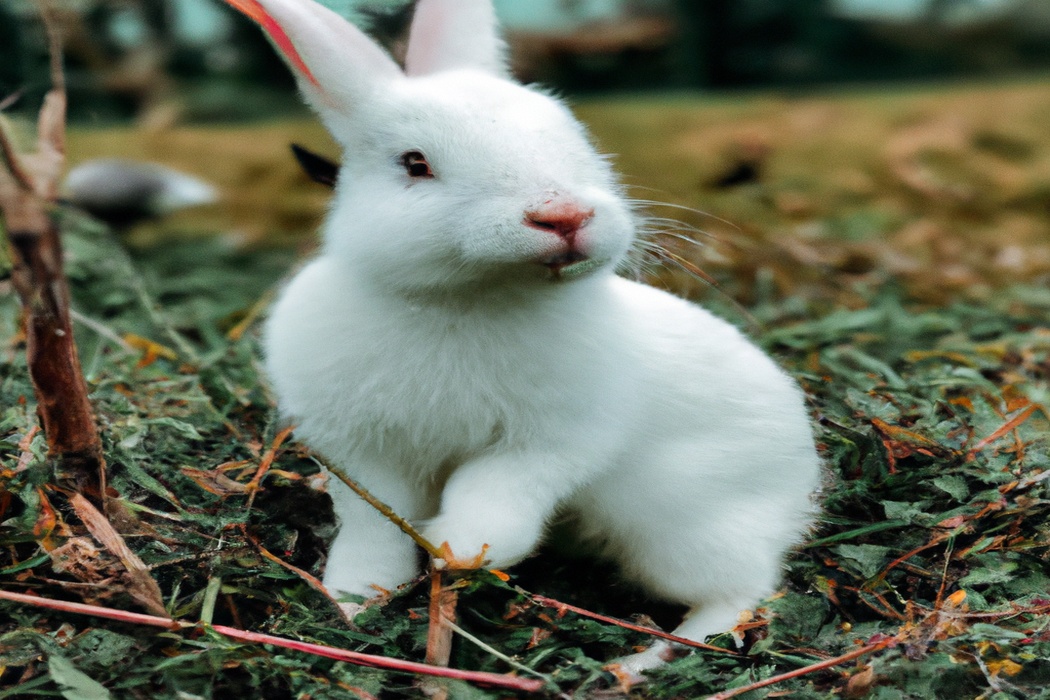
Understanding the Functions of Rabbit Scent Glands
Rabbit scent glands serve several functions in their daily lives. The main purpose is communication.
They use their scent glands to mark their territory and communicate with other rabbits.
These glands produce a unique scent that helps rabbits identify each other and establish social hierarchies. The scent is released through rubbing, spraying, or even leaving droppings.
Additionally, rabbits also have scent glands located on their chins and anal region, which play a role in sexual attraction and arousal.
Overall, these scent glands are crucial for rabbits to navigate their world and communicate with others.
FAQs about Rabbit Anal Glands
Can Anal Glands Cause Health Issues in Rabbits?
Yes, anal glands can cause health issues in rabbits. Rabbits have anal glands that produce a secretion used for scent marking and communication.
If these glands become blocked or infected, it can lead to discomfort, pain, and even abscesses.
Symptoms may include excessive grooming, scooting or dragging their bottom along the ground, and swollen or painful anal areas. If you notice any of these signs, it’s important to consult a veterinarian for proper diagnosis and treatment.
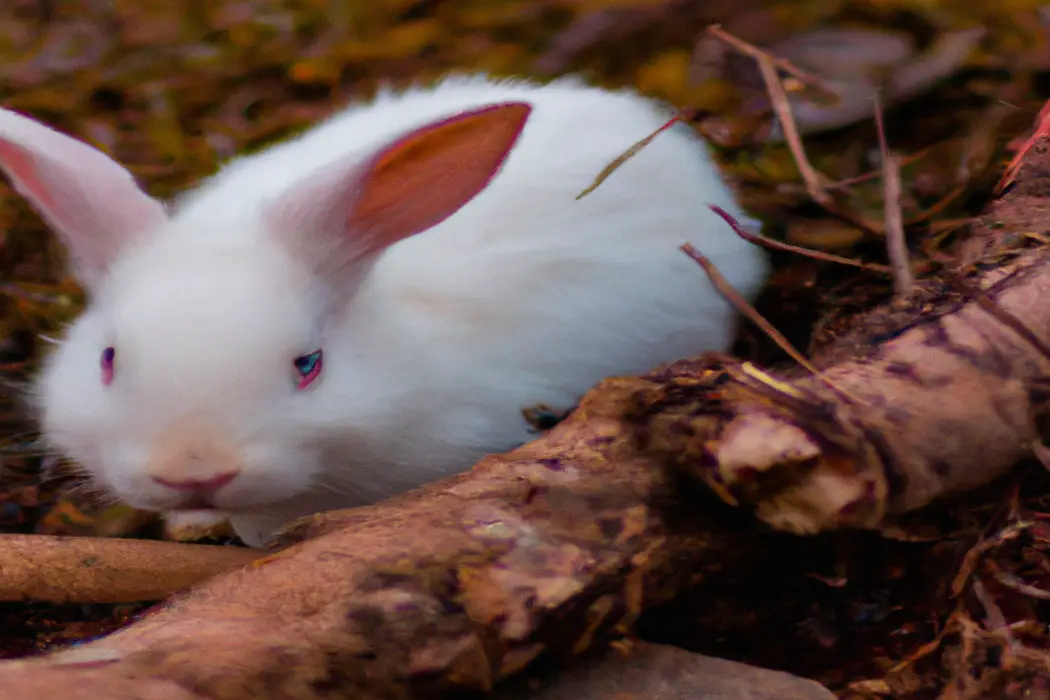
Can Rabbit Anal Glands Be Cleaned or Expressed?
Yes, rabbit anal glands can be cleaned or expressed. This is usually done by a veterinarian or an experienced pet groomer.
They will gently squeeze the glands to release the fluid and alleviate any discomfort or potential issues.
Regular cleaning or expressing of the anal glands is important to maintain the health and hygiene of your rabbit. It’s always recommended to seek professional assistance for this procedure to ensure it is done correctly and safely for your furry friend.
How to Detect Problems with Rabbit Anal Glands?
To detect problems with your rabbit’s anal glands, look out for signs of discomfort or distress such as excessive grooming or biting in the anal area. Check for any swelling or redness around the anus, as well as the presence of discharge or a foul odor.
Your rabbit may also have difficulty defecating or show signs of pain while doing so.
If you notice any of these symptoms, it’s important to consult a veterinarian for proper diagnosis and treatment.
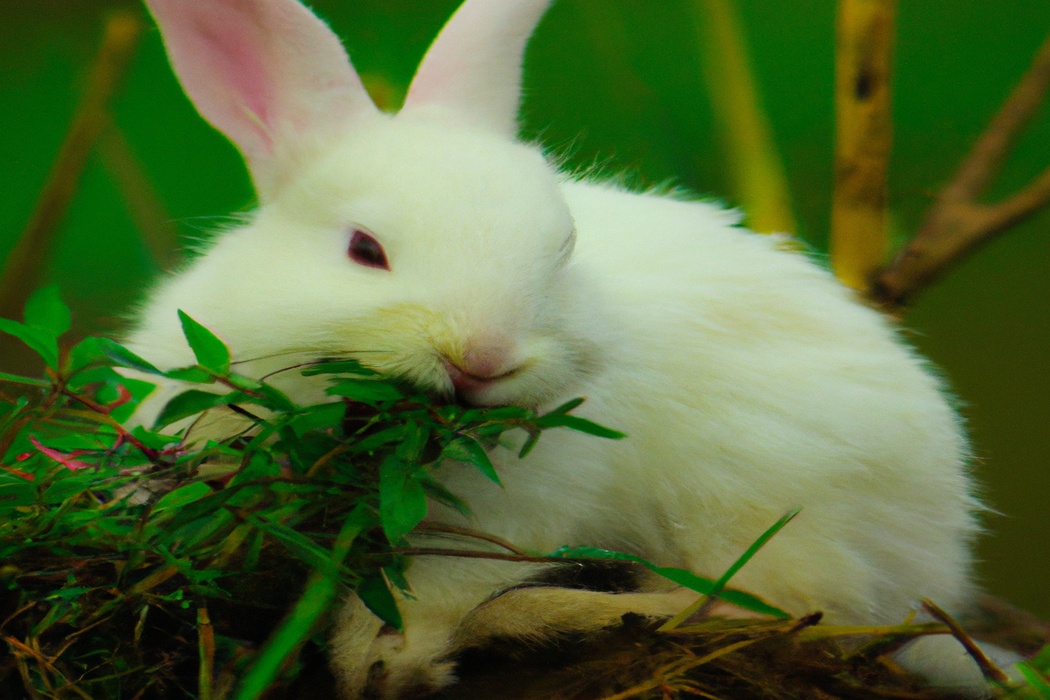
Final Verdict
Rabbits do not have true anal glands like some other mammals do.
However, they possess scent glands that are near the anus and serve specific functions in communication and territorial marking.
These scent glands produce a substance that rabbits use to mark their territory and communicate with other rabbits.
While problems with rabbit anal glands are rare, they can occasionally become impacted or infected, causing discomfort for the rabbit.
It is important for rabbit owners to be aware of the signs of anal gland issues and seek veterinary care if necessary.
Regular grooming and hygiene practices can also help prevent any potential problems.

